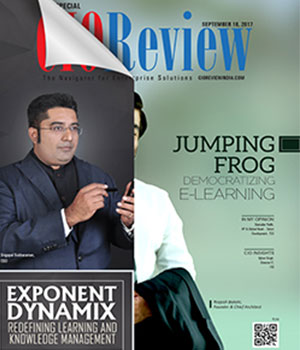
How to Get a Grip in the hard Business Environment in India
Emmanuel Christi Das, Editor | Friday, 27 November 2020, 13:04 IST
 Answer: Executive coach. A qualified experienced professional who works with business leaders and soaring potential employees to uplift them in order to achieve more self-awareness, achieve their development objectives, and bestow clarity to their goals. An executive coach helps the leaders to unleash their hidden potential. Via listening intently, attentively, and deeply to what the client has to say, an executive coach is able to throw insightful and thought-provoking questions to build awareness of the leader’s unique strengths as well as experiences and contradictions. The coach shoots relevant and investigative questions to enable, rather empower, leaders find a solution to their problems on their own. An Executive Coach unveils the story behind the story of the behaviours exhibited by leaders.
Answer: Executive coach. A qualified experienced professional who works with business leaders and soaring potential employees to uplift them in order to achieve more self-awareness, achieve their development objectives, and bestow clarity to their goals. An executive coach helps the leaders to unleash their hidden potential. Via listening intently, attentively, and deeply to what the client has to say, an executive coach is able to throw insightful and thought-provoking questions to build awareness of the leader’s unique strengths as well as experiences and contradictions. The coach shoots relevant and investigative questions to enable, rather empower, leaders find a solution to their problems on their own. An Executive Coach unveils the story behind the story of the behaviours exhibited by leaders.
In India, Executive coaching is still in its infancy. Nevertheless, its roots could be traced some 15-18 years back. Its importance to businesses and the leaders are on an rising projectile, given the economic uncertainties and complex issues inside and outside companies faced by business leaders in India today. Resultantly, Indian business leaders are shedding off their genuineness as leaders, and have commenced the process to engage with an executive coach who acts as a sounding board, confidential and trusted friend, philosopher, and guide.
You take any business leader, the leader can’t be prepared for every crisis all the time; however, the organization and the leaders can take measures in advance to reduce the consequences of a crisis. A leader ought to keep in mind the significance of actions and choices during times of crisis. A leader cannot predict a crisis; however, the same leader can prepare oneself for them in more than a few ways.
What changed in the last 15-18 years with respect to coaching? The answer to that question is very rhetoric in nature. Companies today have shifted their preference from engaging coaches “a reaction to a business crisis” to engaging them “proactively for the development” of leaders and executives at senior and mid-levels.
Executive coaches frequently work with clients on the skills that tend to come forth most obviously during crises. In the coaching sessions, business leaders regularly focus upon skills like decision-making, communication, owning mistakes, and delegating responsibly. Irrespective of the business leader having never faced a major crisis, those skills have been and will be key to outstanding leadership.
Not so long ago, the Indian subsidiaries of MNCs engaged executive coaches. Today, the gamut has reached further to include mid-level managers, high potential employees, and vintage managers in family-managed businesses.
Also, in some PE funded startups, executive coaching for the leaders is a mandate from the funding partner. The leaders are coached on business and leadership behaviours. Now this approach has slammed opened doors to having thoughtful and introspective conversations and providing objective feedback. Last 5 years have witnessed increased numbers of organizations engaging executive coaches has increased manifold. Organizations are now more selective and have begun holding rapport building meetings before the coach is on-boarded. Besides, mutual comfort is objectively evaluated.
In India, a while ago, coaching was generally considered not a very dazzling profession. Leaders were not very forthcoming to be coached, however, the perception is changing now. Now, people understand the context, purpose, and objective of executive coaching. To accelerate the growth of business leaders and High Potential employees, the coaches are being engaged. Today, coaching has been made part of the Total Reward System for High Potential employees in some of the progressive thinking organizations.
The executive coaches sit with the clients to co-create the coaching goals. They question beliefs, introspect and change the way leaders observe, and bring in very evident and sustainable changes in leaders’ behaviors thereby ensuring the Return on Investment. What’s more enthralling, is that the leaders and the companies are willing to invest time, energy, efforts and money for the leaders’ development journey. Leaders understand evidently that the investment is not on executive coaching but the desired business outcomes.
CIO Viewpoint
IT DOES MATTER - The causes and costs of data...
By Upkar Singh, Director IT, FIS
Why Artificial Intelligence will Empower the CIO
By Gregory B. Morrison, SVP & CIO, Cox Enterprises
LMS - Present and Future Trends
By Milind Gokhale, VP–Technology and Learning Platforms, Tata Interactive Systems
CXO Insights
How Digital Learning helps Businesses Increase...
By By Saratchandra Panganamamula, Head of SAP HCM/SF Practice, YASH Technologies
What Could 5G Mean to the World of Enterprise?
By Danessa Lambdin, VP, Mobility Product Management, AT&T Business Marketing
Strategy & Execution for Healthcare Analytics...


.jpg)





